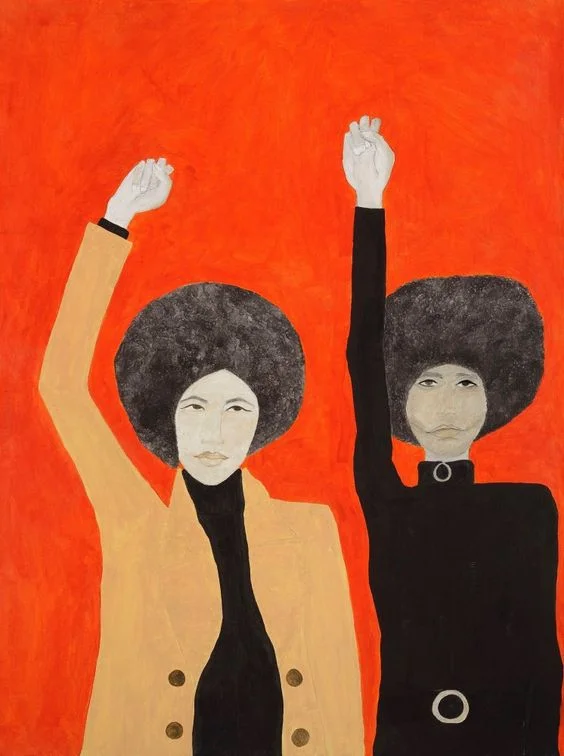How to Do More than Performative Activism in the Wake of the Women’s March
A week has passed since the third annual Women’s March, and while some good was done, exclusions still persisted. Choosing to not attend two years in a row after marching the first year has allowed myself to reflect on not just these exclusions, but the futile concept of performative activism. Does posting your “involvement” on social media to prove a point actually work towards eradicating homelessness or violence against people of color?
While attending these forms of protest can foster supportive communities, there is always more that can be done to help those who need it the most. Instead of investing our time in proving to the world our feminism through Instagram posts, investing our time in grassroots efforts that include all bodies and all types of feminism may be more productive—and even fulfilling—than these marches. Below is a comprehensive list of ways to get involved for those who are able, along with resources to support those in marginalized communities.
Kate Boxer, “Kathleen Cleaver and Angela Davis (acrylic ink on canvas),” 2016
If Able, Donate, Donate, Donate
Fortunately, several of my friends and peers already give monthly donations to well-known organizations such as Planned Parenthood or the Human Rights Campaign. Yet, an even more inclusive goal is to also do the same for other organizations that affect all marginalized groups, especially in the current climate where transgender and nonbinary people are not legally recognized. Making either a single or recurring monthly donation to any of the organizations below can ensure that your activism includes issues that may not directly affect you, but that need the most attention:
National Center for Transgender Equality: The NCTE is the most widely known and leading organization that directly works to advocate for trans and nonbinary rights on a legal, political, and social level. They accept one-time and monthly donations.
Black Lives Matter: This advocacy group represents the movement that was founded to start the conversation about increased violence against Black communities. Donations can be made on a one-time or monthly basis, and you can also do more, like getting involved with your local chapter.
Everytown for Gun Safety: Everytown advocates for an end to gun violence in America through legal and political action, and because gun violence is one of the most pressing issues in America today, be sure to make one-time or monthly donations to move towards common-sense gun reform.
National Immigration Law Center: The NILC works towards legally defending the rights of immigrants, particularly the vulnerable, low-income groups. Donate once or on a monthly basis to put an end to the treacherous policies and racial profiling the Trump administration has put in place.
The Sylvia Rivera Law Project: The SRLP is a nonprofit organization that works towards legally helping trans, nonbinary, and/or intersex people, ranging from legal name changes to healthcare discrimination. You can make a one time, monthly, or yearly donation.
Trans Women of Color Collective: Trans and nonbinary people of color are disproportionately affected by homelessness, incarceration, employment discrimination, and more, so TWoCC exists to advocate for their rights on the basis of survival, education, and wellness. Make a one-time donation through their PayPal or contribute directly to their individual survival, education, and/or wellness funds.
Pride Fund to End Gun Violence: Due to the LGBTQIA+ population being highly vulnerable to hate crimes, including gun violence, the Pride Fund works towards both sensible gun reform and equality and safety for the queer community. Donate once or on a monthly basis.
HIPS: HIPS is a DC-based nonprofit advocacy organization that “promotes the health, rights, and dignity of individuals and communities impacted by sexual exchange.” To ensure sex workers are able to live a healthy and fulfilling life, which the law works against, give a one-time donation or sign up for their pink membership to donate monthly.
The Audre Lorde Project: Dedicated to the legacy of one of our favorite activists at The Thirlby, The Audre Lorde Project advocates for wellness and social change amongst queer people of color. They accept one-time and monthly donations, and you can also volunteer.
The Happy Hippie Foundation: Founded by Miley Cyrus, this nonprofit organization provides support and other services to homeless youth, but particularly LGBTQIA+ youth, and they allow for one-time and monthly donations.
You can also support individuals directly, especially Black and queer individuals, by following platforms like that of Ericka Hart (who has an entire post on it with tagged Black people to support) and ShiShi Rose who have ongoing features of people who need support.
More (And Free!) Ways to Get Involved
Making monthly donations may be the simplest and most transparent method to actually put change in place, yet this is not always possible for all. Even if you are able to donate, there’s still more that can be done to advocate for structural change.
Luckily, there’s an act that’s even simpler than donating—voting in every possible election you cantor those who are eligible. While at times voting seems futile, it is the surest way to get people who hold our same values and missions into office. Instead of just voting for the person that is aligned with your party, do your research. Understand where these people stand in not just the policies you personally care about, but the ones that can drastically affect a population that may not include yourself.
Along with voting, volunteering or getting involved with the organizations listed above is an affordable way to make a change. Many hold volunteer programs, ranging from advocacy and canvassing roles, office work, and even creatives jobs such as writing or photography. Explore the websites of the above-mentioned groups for volunteer opportunities.
When and if elected, engage with your representative on their stances and possibly on issues that remain unattended. If you’re unable to participate in elections—such as this underage or immigrants—you can still volunteer in-person or virtually. Search for your local representative’s or the upcoming 2020 Election’s hopeful candidates’ websites for more information. There are also political platforms—such as the Democratic Socialists of America that our Editor-in-Chief is involved in—to which you can invest your time.
Finally, Resources to Support Those in Vulnerable Positions
For those in the marginalized communities that don’t necessarily feel welcomed at mainstream rallies such as the Women’s March, your mental health and wellbeing may be at a greater risk than those who do have the privilege. Fortunately, several hotlines exist for specific communities, where trained professionals are available 24/7 to talk. Reach out to any of the following hotlines if you are in need, or also take the time to donate or volunteer at these organizations if able.
The Trevor Project: This widely known advocacy organization specializes in helping LGBTQIA+ youth. Call them at 1-866-488-7386 to talk to their trained counselors, or use their TrevorChat or TrevorText services to also seek guidance from these counselors.
RAINN: RAINN hosts the National Sexual Assault Hotline, where sexual assault survivors can speak to trained sexual assault service providers to offer a variety of types of support. Call them at 800-656-4673, or use their live chat service.
Trans Lifeline: The Trans Lifeline supports all transgender and nonbinary individuals through their hotline. Call them at 877-565-8860 (or 877-330-6366 for Canadian callers) to speak to a trans-identified, trained operator.
United We Dream: This organization works towards creating safe spaces for immigrants regardless of their status. You can report an ICE raid or any other harmful activity through their MigraWatch hotline at 1-844-363-1423.
The Ali Forney Center: The AFC advocates to end homelessness amongst LGBTQIA+ individuals. If in need of support or services, contact their drop-in center at 212-206-0574.
About the Author
Natalie Geisel is in her third year at The George Washington University studying women’s, gender, and sexuality studies with a minor in communication. Her love of writing sprouted from starting her fashion blog in high school, and her current written work spans from topics such as style, LGBTQ+ content, and music. She is interested in intersecting gender and sexuality into the world of wellness, hoping to add a queer voice to its editorial side. When she’s not writing, she spends her spare time at dance rehearsal, attending local indie shows in the DC area, or finding the best cafes that serve oat milk. She’s passionate about inclusive sex education and sustainable fashion and thinks everyone should be, too.




